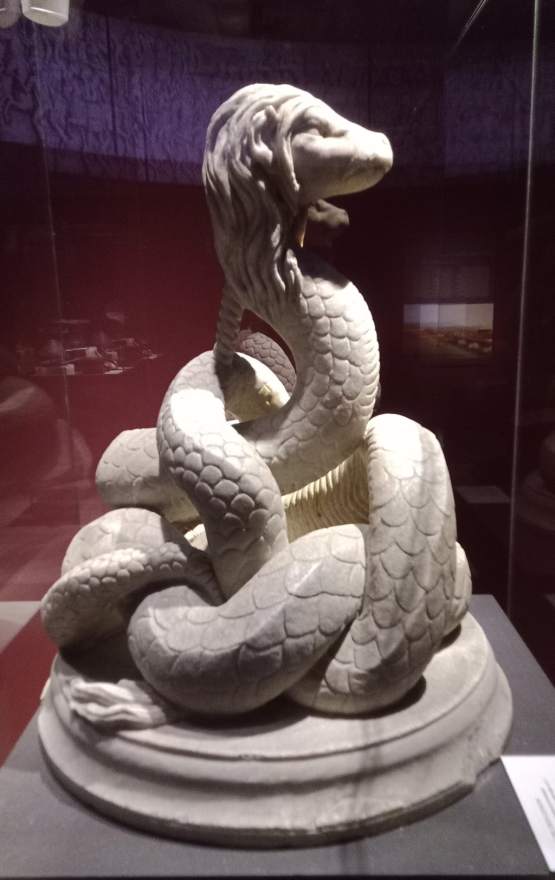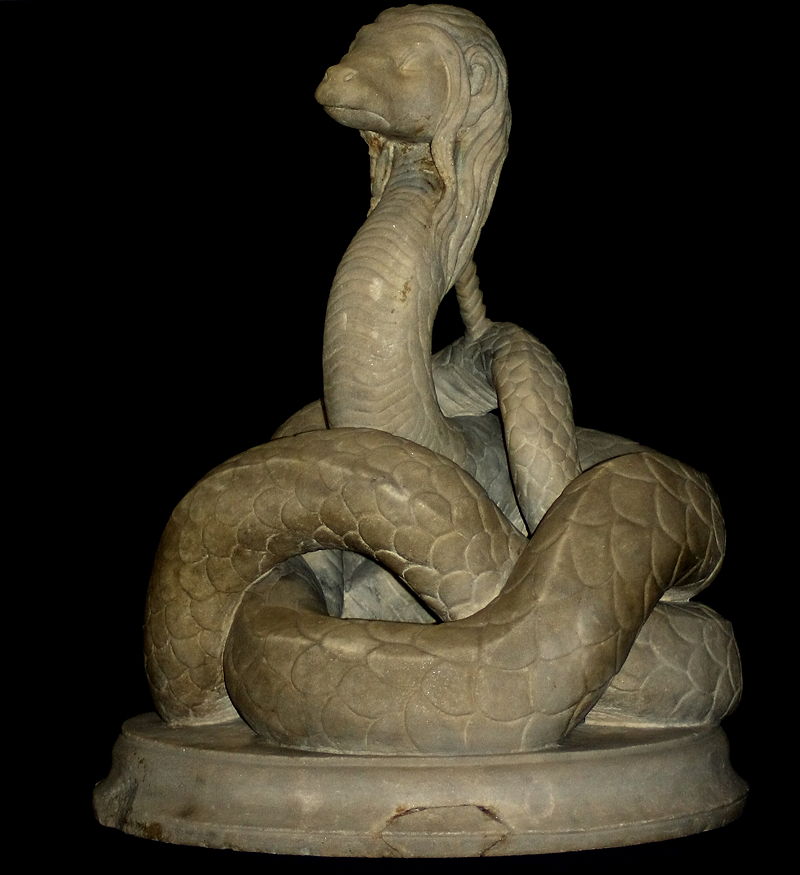Mythology: The True and Ancient Cult of The Serpent God Which Even Today Is Enveloped in Science
Last updated on May 3rd, 2024 at 10:36 am
Glycon, Γλύκων Glýkōn , Apollon.
Authored by Robert E. Howard Via Conan The Barbarian Series

R.Howard was certainly inspired by this mythical story to create his saga.

The story of Glykon, the serpent god, is a fascinating and complex tale that spans across ancient Greece and the Roman Empire. It is a story of deception, power, and the human desire for connection with the divine. Glykon was a serpent god worshipped during the 2nd century CE, particularly in the provinces of the Roman Empire. He was said to have originated in Macedonia, where similar snake cults had existed for centuries. The cult of Glykon was introduced by the Greek prophet Alexander of Abonutichus, who claimed that Glykon was a reincarnation of Asclepius, the ancient Greek god of medicine. According to the cult’s mythology, Glykon was a physical serpent that appeared after Alexander had foretold the coming of a new incarnation of Asclepius. The serpent was said to have magical powers relating to fertility and was believed to have the ability to heal and protect its followers. The cult’s focus was on fertility, and barren women would bring offerings to Glykon in hopes of becoming pregnant. The cult of Glykon gained immense popularity, with coins bearing his image being issued and statuettes being made. He was often mentioned in inscriptions, and his temples and oracles were established throughout the Roman Empire. The cult’s popularity was not limited to the lower social strata; several important Roman functionaries and officials were counted among the believers in Glykon and the prophecies of Alexander.
However, the cult’s success was short-lived. It started to decline around 175 CE, after the death of its “prophet,” Alexander. The cult eventually disappeared completely in the 3rd century CE.
The story of Glykon is also significant because it highlights the power of deception and manipulation in the pursuit of power and influence. Alexander, the prophet who introduced Glykon, was accused of being a charlatan and a swindler by the contemporary satirist Lucian of Samosata. Lucian claimed that Glykon was a doll handled by its master, and that Alexander used his cult to make a fortune by deceiving people in every way possible. Despite the cult’s eventual decline, Glykon remains an important figure in the history of ancient Greece and the Roman Empire. His story serves as a reminder of the human desire for connection with the divine and the power of deception in the pursuit of power and influence.
Presumably to get pregnant the women prostrated themselves in orgies as captured in the film.
The cult, however, influenced that era in the area of Thrace and Peloponnese, today’s Bulgaria, Greece, Romania, and certainly other nearby areas.

Ἀχιλλέως νῆσος – Achilleis
Even a legend has it that the Demi-God Achilles was buried on Serpent Island in the Black Sea.
According to legend, Achilles was indeed believed to have been buried on Serpent Island in the Black Sea. The island was considered sacred to Achilles, and various ancient sources mention its association with the hero. The eighth- or seventh-century B.C. poem the Aethiopis relates that after receiving his fatal ankle injury at Troy, Achilles’ remains were transported to the White Island (also known as Snake or Serpent Island) by his mother Thetis. The island was also referred to as the Island of Achilles and the Racecourse of Achilles in ancient texts).

The island was considered a major sanctuary of the hero, with a temple and a statue dedicated to Achilles, as well as offerings to him and Patroclus. Additionally, the island’s association with Achilles is mentioned in various ancient sources, including praise-poet Pindar and the historian Pliny the Elder.
The legend of Achilles being buried on Serpent Island has persisted through the ages and is still part of the island’s folklore, with the island having a special place in Ukraine’s folklore and being reputed to be the burial place of Achilles. However, it’s important to note that this information is based on legend and mythology, and there is no concrete historical evidence to confirm the actual burial of Achilles on Serpent Island.













